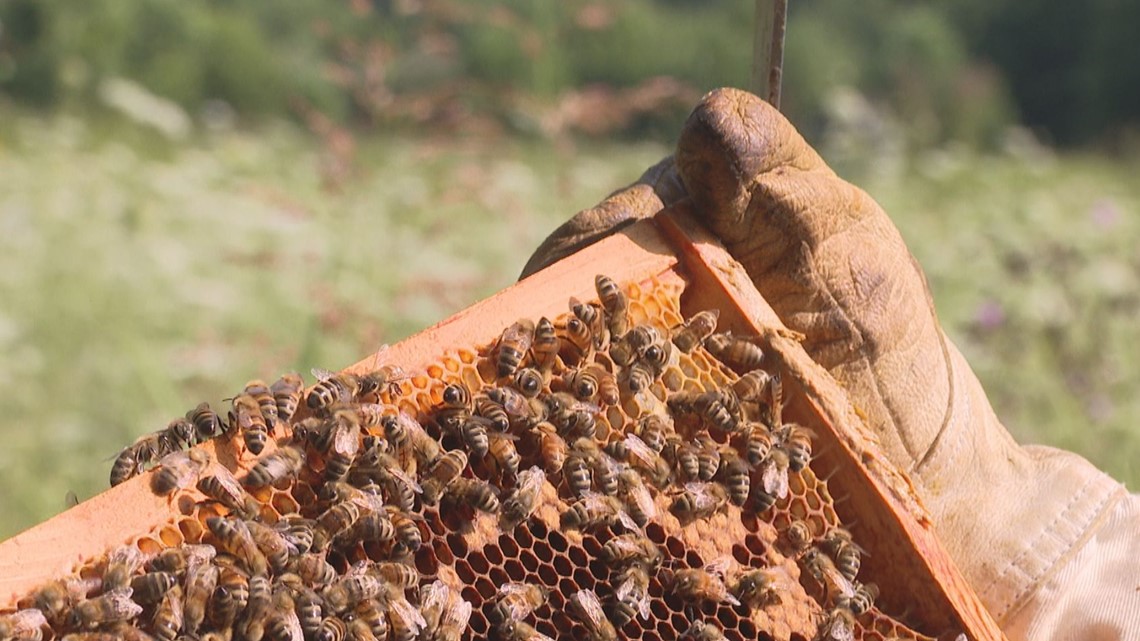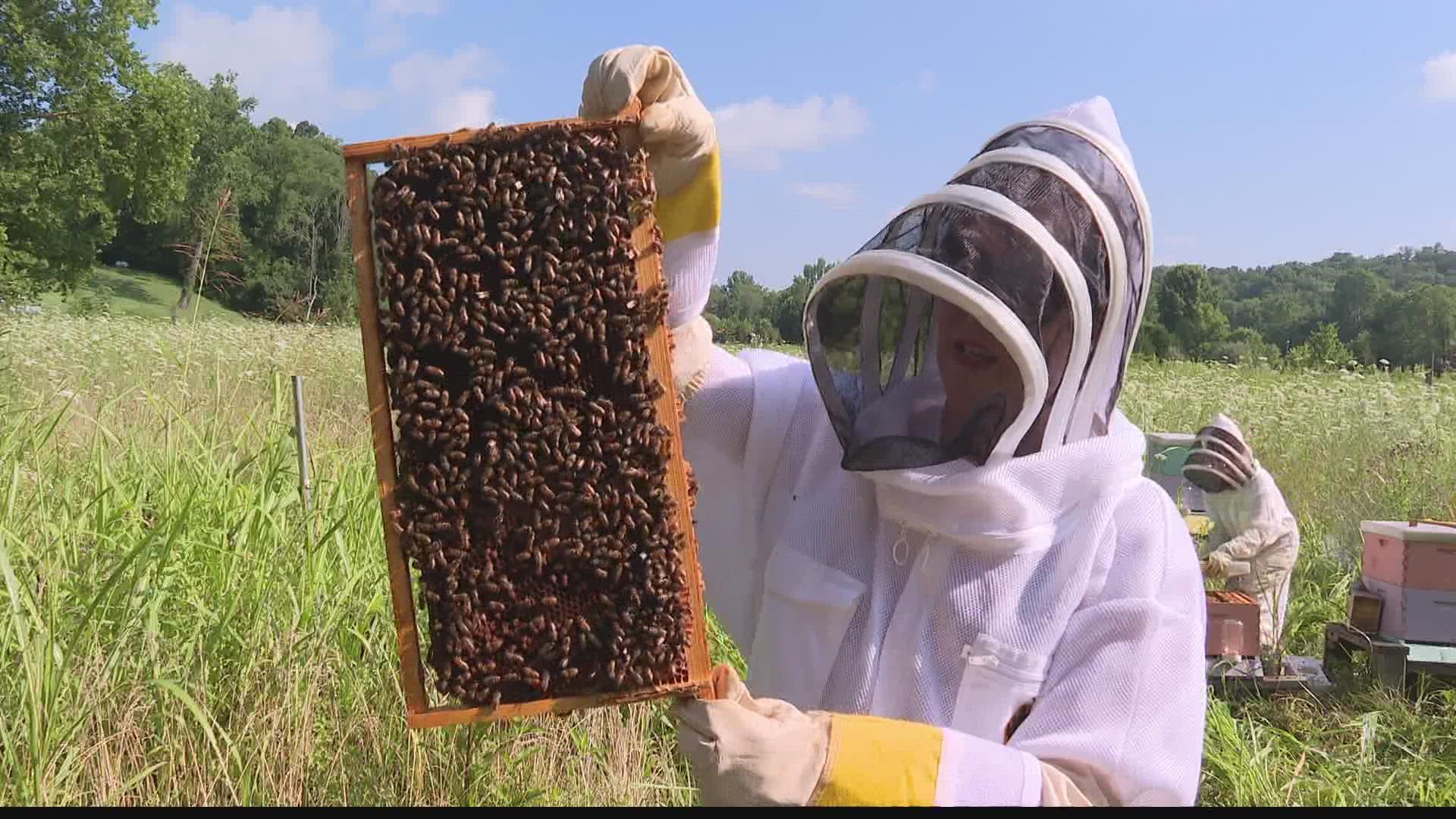BLOOMINGTON, Ind. — In a quiet field outside Bloomington, Indiana University researchers check in on their honeybees.
"So what we're looking for right now is brood and that is the developing larvae," Audrey Parish, an IU Ph.D. candidate and researcher said.
On a hot July day, Parish joined Dr. Irene Newton, a professor of microbiology and bioinformatics at Indiana University, out on site as they monitor the health of their honeybee colony.
"Oh, look at that forager with the pollen basket," Parish pointed out, looking at the honeybees.
Parish and Newton are studying ways that stressors impact honeybees, especially nutrition, and how providing nutrition to developing bees could help ease that stress.
“We are interested in identifying microbes that are associated with the bee that can serve as probiotics. Probiotics are bacteria that you can give to an organism or a human and that can provide a benefit in any particular context. People have probably heard of probiotics in yogurts helping with digestion and nutrition for us, so we like to identify the microbes that are associated with the bee that could be providing certain benefits and figure out how to best supply them in an agricultural context,” Newton said.
"Imagine you're developing larva and you're getting the food that your nestmates provide for you but sadly, they don't have very good resources. They're doing their best to feed you but you can only do so much with the material you've got and it's important that you grow strong during this period," Parish said. "So what the bacteria that are present in this niche do is transform the food that you're getting from your nestmates into something more nutritious so that despite having a hard time with your nutrition, you're still going to be able to grow and mature into the bee you need to be."


Honeybees are critical in getting food from farm to table. The USDA reports honeybees are behind one out of every three bites of food we take.
But the population has been in serious decline from colony collapse for decades.
"They're really the most important agriculture pollinator globally, they are the organisms that are going to pollinate all of the important fruits and nuts and vegetables that people love," Newton said. "So without bees around, we really wouldn't have those foods available for us in our grocery stores."
Newton said they're interested in identifying microbes for bees that can serve as probiotics for bees' nutrition and supply them with it - and they've identified one that can help.
"So this organism we discovered, Bombella apis, is the microbe that is found in the queen's digestive tract. The queen is the most important member of the colony, she is the only reproductively capable member, she is in charge of laying all those eggs to bring up the next generation of bees. She's the only one who is able to maintain colony strength and numbers, so her health and longevity is critically important to colonies," Newton said.
There are different strains and varieties of Bombella apis and their team is working to identify the best ones to provide the larvae inside these honeybee colonies, offering nutrition early on to reduce stress and help populations.
“Our goal is to basically come up with a panel of good Bombella isolates that will protect the bees against these environmental colonies and will help to naturally supplement a bee’s resilience,” Newton said.


"It seems like a fairly easy fix," Parish said. "It's even so easy that we could give you Bombella apis and you could put that in sugar water and set that sugar water outside the colony and the workers are going to bring that sugar water in. The Bombella is going to make it into those important niches most likely because they're feeding it to all of the larvae as soon as they receive it."
"We are quite keen to develop this as an intervention for beekeepers," Newton said. They've established a company that can help them to commercialize their research, so they can put it to use in helping honeybees not only survive but thrive."
"Giving them a supplementation that is not only going to improve the health of their colonies but cost them no additional time is pretty groundbreaking. And it's something we're really excited about," Parish said.
This help for honeybees won't just impact their critical populations but could also help our own food supply down the road, too, according to Newton.
"If we can have bee populations bolstered and increased, then this would definitely trickle down into the price that we pay for our foods in the grocery store," Newton said.

